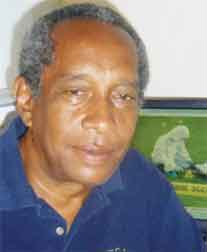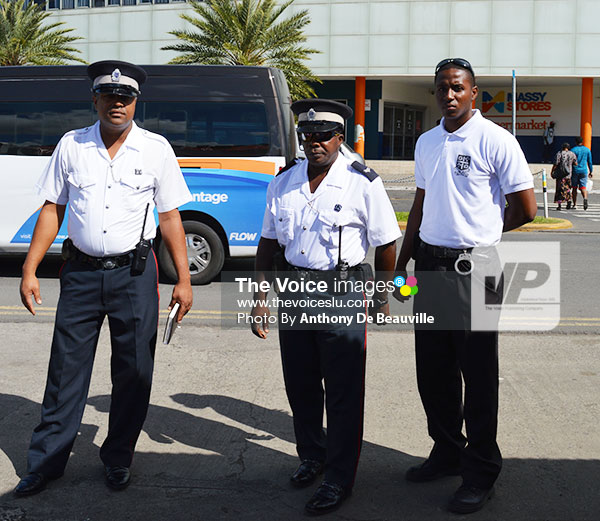
AS a young boy growing up, citizens looked to and depended on our police force for protection and the agency for action from criminal wrongdoing. True, infractions would have been relatively simple and manageable. Infrequent petty crimes of praedial larceny, minor house breakings, petty theft, indecent language, threats against person, physical assaults — what we called fist fights — and the occasional report of rape were the order of criminality. Murders were few and far between and hardly or not gun-related. Even the so-called ‘bad boys’ respected life.
Crime-solving rates were usually very high and largely due to general public cooperation and good old-fashioned detectives plodding with boots on the ground and utilizing their basic skills while actively seeking out the ‘ears’ and ‘eyes’ of community-spirited friends. Eyewitness testimony was available. There was no forensics and technology was basic fingerprinting but much worked.
As time elapsed and the 1990s entered, admittedly with general overall development, societal trends and changes in values, a lot has changed. Law and order has come under threat as the face of criminality has steadily and dramatically increased to the nightmare it presently is.
Illegal drugs and its trade which have ushered in guns, the use of guns (for associated reasons) and gun crimes have become law enforcement’s biggest headache and have defied successive government administrations. Further, we have seen the consequences of the birth and rise of gangs and the gang culture. Gruesome and horrific murders have been some of the spin-offs and the tentacles of high criminal activity seem to be permeating throughout. Increasing reports of abuse and serious criminal acts against women and children who we term ‘our nation’s future’ must be of concern.
Already emerging is the use of technology, social media, cell phones, internet access and Facebook in facilitating and/or perpetuating wrongdoing and illegalities. Voila, cybercrime and the free and easy dissemination of all types of pornographic material illegal or offensive to society! The authorities are struggling to counter those trends. Legislation seems nonexistent or gray and inaction seems to be shrouded in the words ‘police can’ but we would rather hear ‘police will’.
But back then it was okay to have the planning and administration of safety, protection and security of citizens and the nation fall under our police force. The Commissioner of Police was the professional in charge while the Minister with responsibility was the political point person for giving government direction and policies and having general oversight. It worked then.
The question is in today’s world of wide and ever-widening criminal activity and the complex issues relating to all aspects of safety and security, both internal and external, human trafficking and threats of terrorism which we are subjected to, can we expect the combination of a Police Commissioner and his Minster, well-intentioned they may be, to effectively hold the reins of control in such an obviously overwhelming state of affairs?
We have not been short of alarm bells. The year commenced with a blast of murders even if now tapering away. For some time now, phone calls of bomb threats have disrupted economic activity and further stretch already overstretched meagre police resources. Many months ago, five people from Eastern Europe easily arrived on island without proper documents and had to be quickly deported. Sometime later, a suspected terrorist escaped imprisonment in neighbouring Martinique and had us on alert and, recently, again in Martinique, an individual came under the spotlight for unusual comments made during his presence at a security installation there.
We are well aware of the situation that exists in Europe today. Even in the Caribbean with its easy inter-island travel, we must be concerned of claims made regarding terrorist sympathizers originating from some sister islands. A May 30 St. Lucia News Online report indicated the UK Foreign and Commonwealth Office as issuing an advisory to its citizens visiting Jamaica to be on alert for possible terrorist attacks. The situation regarding Trinidad and Tobago is no secret.
Our very Minister for National Security has expressed concern on the vulnerability of our cruise ship industry as a soft target and the importance of government addressing problems of crime even from within the schools. So make no bones about it: things are ‘tight’ and the climate is ‘rough’.
I believe then the time is ripe that we establish –and /or — reactivate a national security council to better monitor and administer all issues relating to protection/safety/security of citizens and residents from threats internal and external.
Such a council made up of the relevant key ministers of government (National Security, Attorney General, Health, Social Services, Education), chaired by the Prime Minister and supported by the relevant professionals, including a competent national security advisor, will allow for informed comprehensive deliberations and more effective and rapid analysis and decision-making in planning and addressing threats both current or impending.
Informed recommendations can then be forwarded to the Cabinet of Ministers for easy review and authorization. Such a council may even be tasked with developing a comprehensive national anti-crime strategy and action plan — to date an apparently elusive but critical need.













